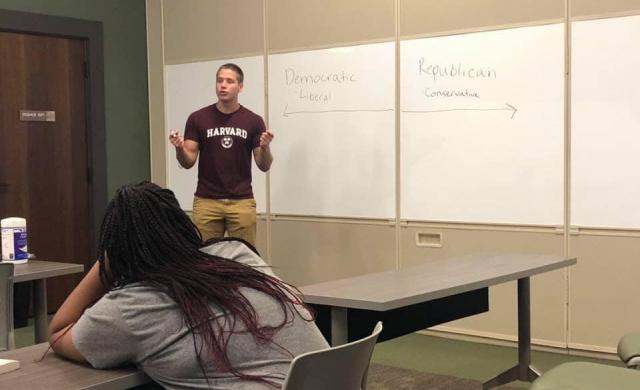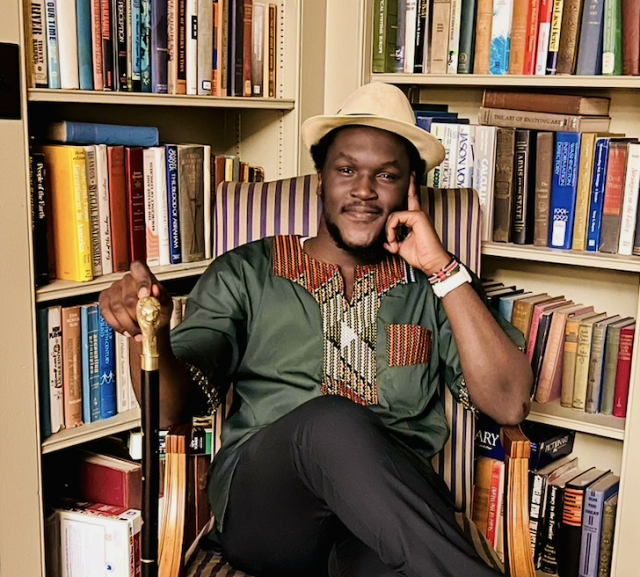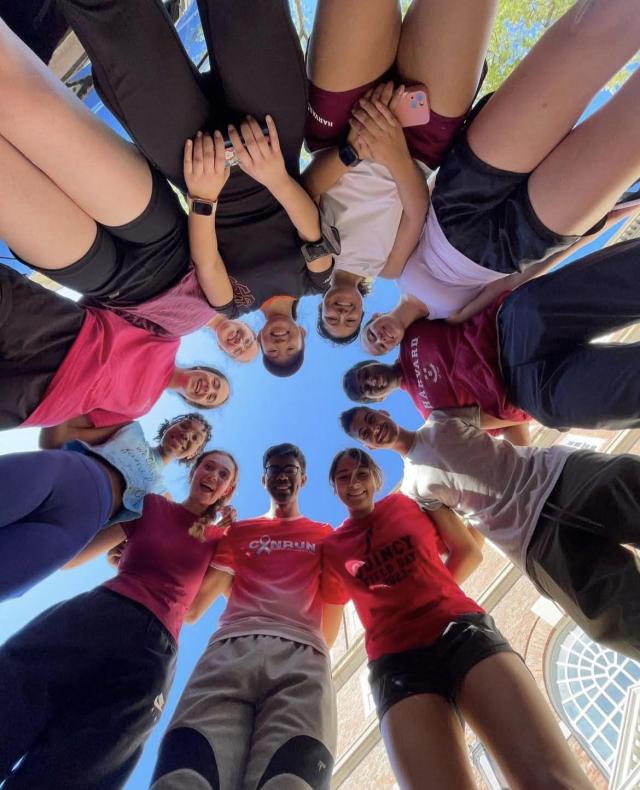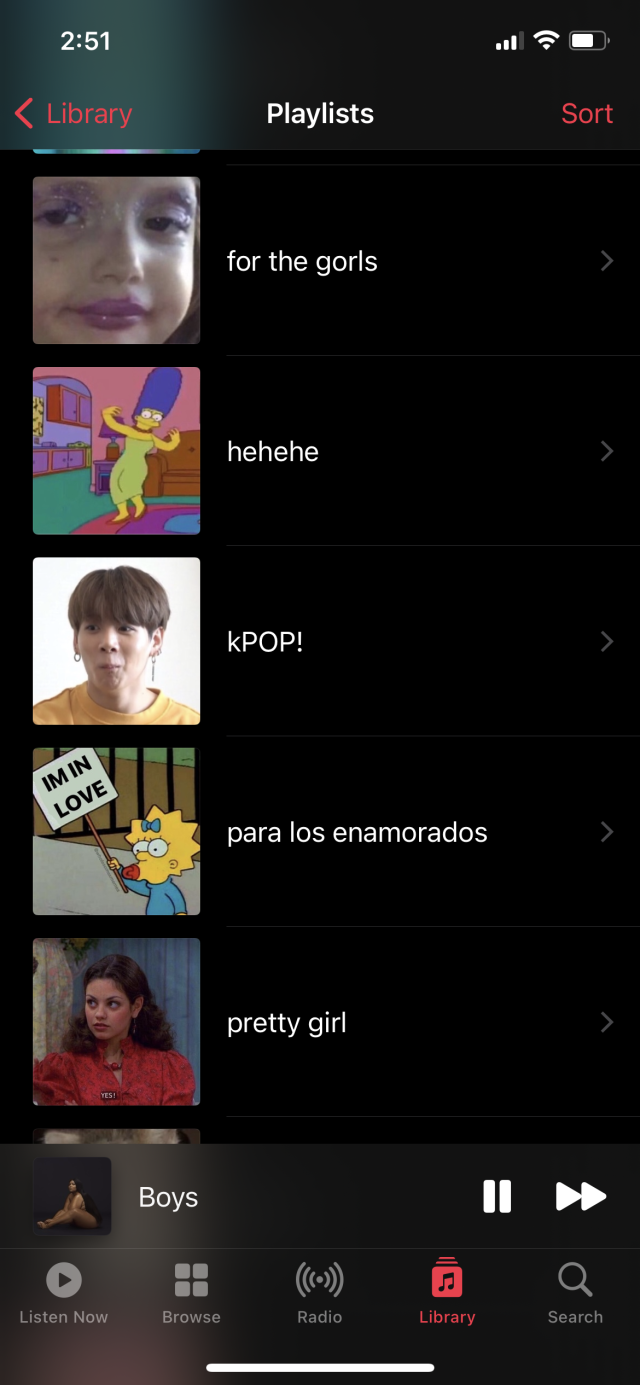If you’re like I was in high school, chances are you might be a little confused about what it means to major in Government.
Maybe you’re wondering “what exactly is Political Science?” If you happen to be in that camp, you’re not alone! When I was thinking about what I wanted to study in college, I knew that I was interested in politics and current events, so Government made the most sense to my younger self! What I have learned is that being a Government concentrator is so much more than just sitting around debating hot button issues or predicting election outcomes. Government covers a wide range of topics from political theory to international relations and even quantitative methods. In this post, I’m going to walk you through my journey as a Government concentrator and offer a sneak peek at the variety of classes I’ve been able to take!
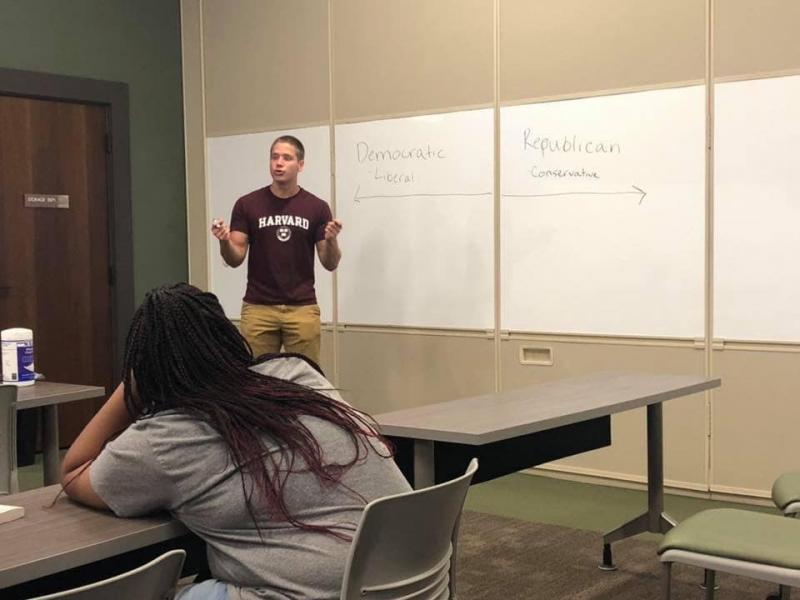
Here I am teaching a government class to middle schoolers!
American Foreign Policy (International Relations Requirement)
This course was an excellent introduction to the Government concentration! It was a double whammy of content, with the first part of the course focusing on major concepts and theories of international relations and the second part looking at how those concepts shape American foreign policy today. It gave me a wide look at international relations using the U.S. as my lens!
Introduction to Quantitative Methods for Economics (Quantitative Methods Requirement)
Stat104 is one of the ways you can satisfy your quantitative methods requirement for Government. In the course, we used statistical software to analyze data (a little bit of coding!) and dipped our toes into concepts like decision theory and hypothesis testing. As someone who is a bit math-phobic, I was pretty worried, but I learned a lot through this class and walked away with some tangible skills which have helped me in my other courses!
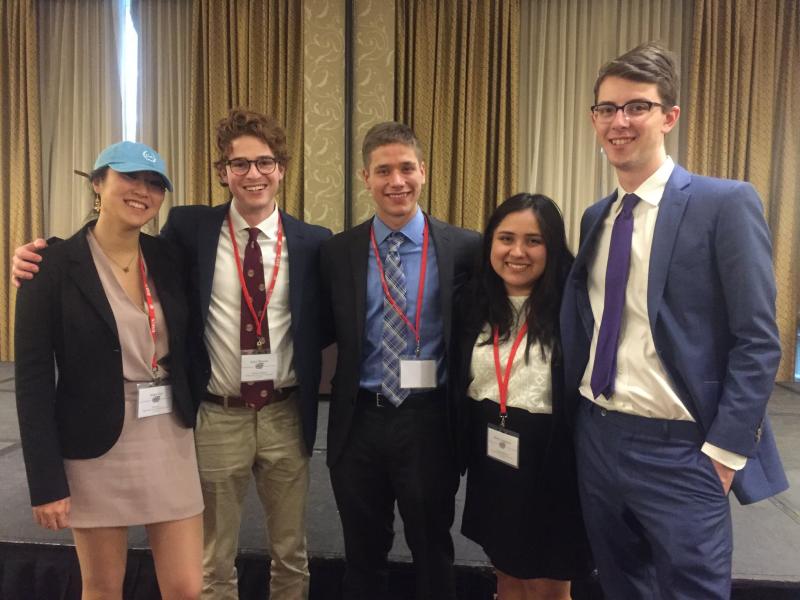
Here I am at a Model UN conference my first-year!
Freshman Seminar: Free Speech (Government Elective)
This still is one of my favorite courses at Harvard. Each week, the 13 of us would sit down with the professor and debate different topics related to free speech, like political cartoons or what to do with whistleblowers. Each of us had different views, so we were able to challenge each other and learn from one another. It also helped me step outside my comfort zone to share and defend my opinions.
Politics of the American Presidency (American Government Requirement)
This course focused on the role of the President in American politics, looking at the office’s relationship to the other branches of government and other nations as well as the factors which contribute to presidents’ different strategic decisions, learning about the tools at his disposal to shape domestic and foreign policy.
Government & Politics of China (Comparative Government Requirement)
This class was split into two parts: (1) the history of China from the last imperial dynasty onward and (2) the last forty years of economic reform, the government’s structure, and China’s relationship to the rest of the world. I went into this class knowing almost nothing and left feeling like I had developed a nuanced understanding of one of the world’s most powerful nations.
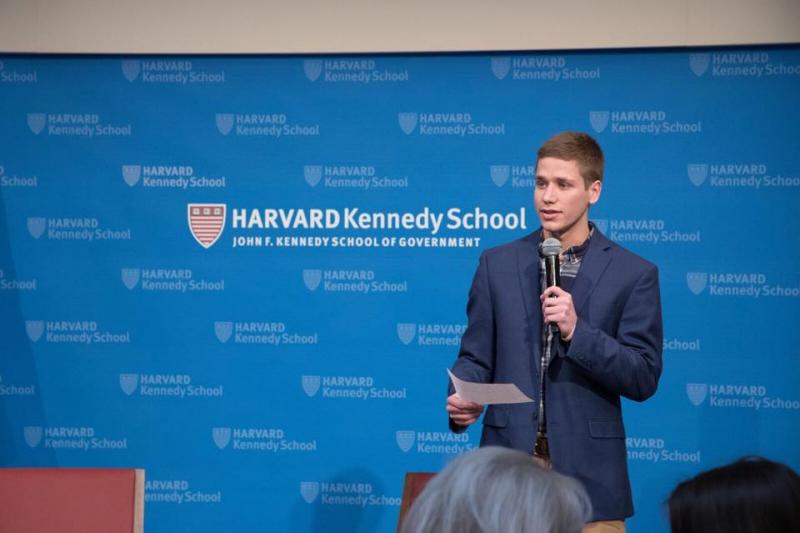
Here I am introducing a panel at the JFK Jr. Forum at the Institute of Politics!
The Politics of American Education (Government Elective)
This was my first exposure to education policy and cemented my interest in it as a career! Each week we learned about different reforms and spent the class debating their pros and cons. Topics included merit pay and school vouchers and, because of this course, I feel like I can hold my own when discussing the merits of a variety of education reform proposals.
Sophomore Tutorial
This is the only course that every single Government concentrator will take: everything else is totally up to you! Put simply, it's an introduction to basic political science skills — topics like looking at data or writing a case study. It gave me tools that helped carry me through future courses.
Politics and Education Policy in the U.S. (Government Elective)
This was my first cross-registered course, offered through the Harvard Kennedy School and the Harvard Graduate School of Education. In this course, we did a deep dive into the Federal Government’s role in education, looking at topics like education-related Supreme Court rulings and major legislation like No Child Left Behind.
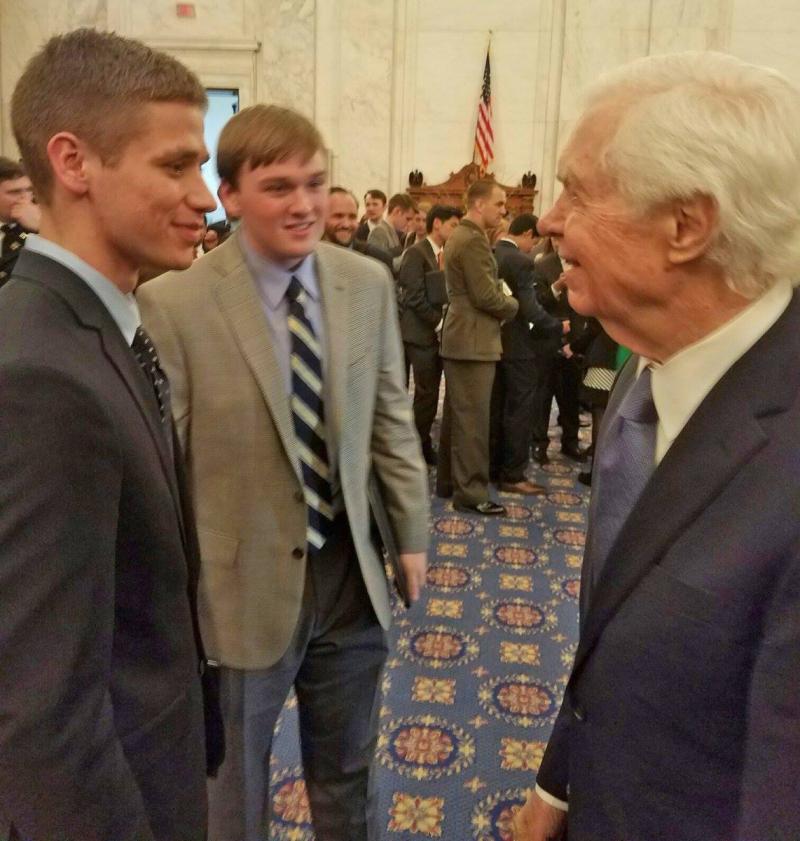
This was a day in high school when I got to meet my state's Senator at the time!
Philanthropy, Nonprofits, and the Politics of American Education (Junior Tutorial)
To graduate with a degree in Government, you must take at least one junior tutorial. Tutorials cover a wide range of topics and are generally capped at no more than 16 students. This course helped develop my research skills and covered a topic that I care about — specifically, the role of the nonprofit sector in education. I found out that it is way more complicated than I had realized!
The Road to the White House (Government Elective)
This is a neat course only offered in election years, so if you come to Harvard you’ll get only one chance to take it! It basically covers what the title implies: presidential elections! The course looks at ways to predict likely winners and the moving parts that go into a successful (or unsuccessful) presidential campaign.
Foundations of Political Theory (Political Theory Requirement)
I was very nervous about fulfilling my political theory requirement, but I actually came to enjoy the class. Everything was taught in a digestible way, and it was cool to be able to walk away from the course having read works from major political theorists like Plato, Hobbes, and Rousseau.
Research Practice in Qualitative Methods (Junior Tutorial)
Finally, since I am writing a senior thesis, I decided that my second junior tutorial (needed for the honors track) should help prepare me for this process. The class was great because it gave me the practical skills to embark on what will be a big project. All of the students were future thesis writers, and we learned how to critique research methods and develop our own. We submitted a thesis prospectus at the end of the course. In other words, we walked away with a tangible game plan for our future research!

Here I am at an IOP Open House!
This has been my experience so far! I hope this provides some insight into the diverse courses and topics you might be able to engage with. At the end of the day, no two Government concentrations are the same. I encourage you to trek your own path!

